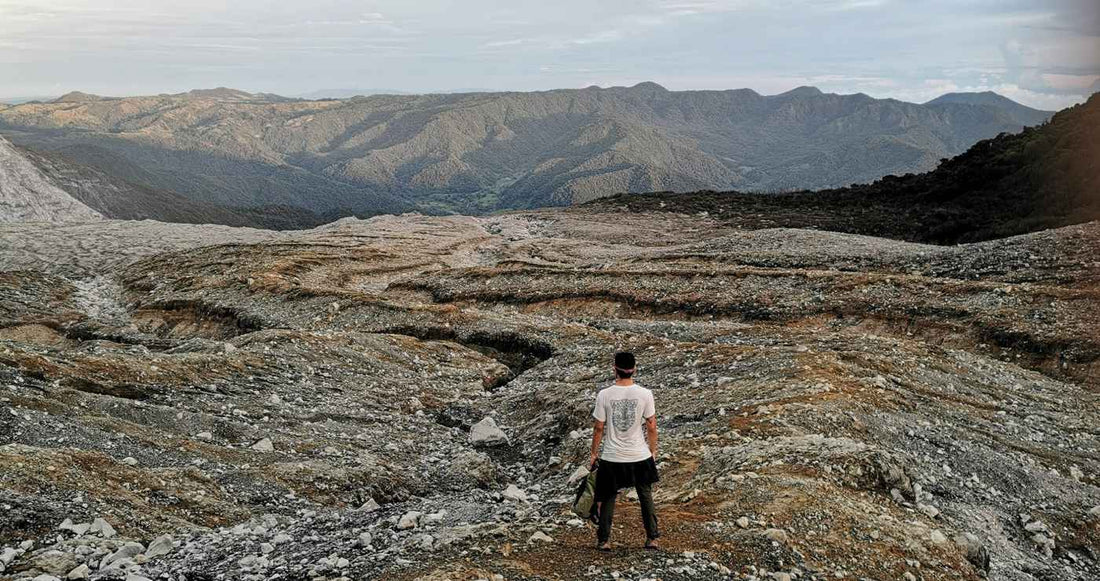
Importance of Ecotourism: Discover its Characteristics
BY NAMUBAKShare
Ecotourism It's much more than just a way of traveling; it's a commitment to nature, local cultures, and sustainability. In this comprehensive guide, we explore this in depth. the importance of ecotourism , how you can practice it responsibly and the benefits it brings to travelers, communities, and the environment.
What is Ecotourism?
Ecotourism, also known as green tourism, refers to a specific type of travel focused on environmental conservation and the well-being of local communities. Unlike Conventional tourism , ecotourism seeks to minimize the negative impact on nature and maximize socioeconomic benefits for the areas visited.
The main goal of being an ecotourist is to ensure that the natural environment is preserved and maintained intact for future generations. This involves making conscious choices during your trip to reduce your environmental footprint and support local economies.
10 Practical Ways to Be a Responsible Ecotourist
1. Travel during the low season
Traveling during the off-season is not only more economical, but also helps reduce pressure on tourist destinations. When the influx of tourists exceeds the destination's capacity, the negative impact on the environment and local communities can be significant. This is one of the consequences of the Gentrification . Choosing to travel during less crowded times helps preserve the integrity of the places you visit.
2. Stay in Certified Ecolodges
The ecolodges They are accommodations designed to integrate harmoniously with the natural environment and minimize environmental impact. These accommodations typically implement sustainable practices such as energy efficiency, recycling programs, and carbon footprint reduction.
They also offer unique cultural experiences that allow guests to better understand the area and its people.
 Pura Vida Ecolodge
Pura Vida EcolodgeThe best eco-lodges ensure their accommodations are consistent with the natural environment and local communities, as well as providing incredible cultural experiences so you can get to know the area better. They contribute to the local economy.
3. Choosing Local Guides and Agencies
Booking tours or activities with small businesses that employ local staff not only enriches your travel experience but also directly supports the local economy. Local guides offer a more intimate perspective of the area and can take you to unique places. that you wouldn't have discovered otherwise.
In addition, local tourism businesses are often involved in conservation and community development projects.
4. Opt for Sustainable Transportation
Transportation is one of the largest contributors to carbon emissions during travel. Whenever possible, choose to walk, bike, or use public transportation . If your destination has a lot of water, consider exploring the area by kayak, canoe, or sailboat.
Enjoy the natural environment at a slower pace Not only is it more sustainable, but it also allows you to connect more deeply with nature .
5. Practice Waste Reduction
Trash remains a significant problem in many tourist destinations. As an ecotourist, it's crucial to be aware of the amount of waste you generate and look for ways to minimize it. Bring reusable bags to collect your trash and make sure to dispose of it in appropriate containers. Avoid single-use plastics and opt for recyclable or reusable products.
6. Respect Wildlife and Habitats
When visiting areas with abundant wildlife, it is essential to respect the animals and their environment. Observe animals from a safe distance and do not interfere with their habitat. Never feed wildlife and follow the instructions of guides or park rangers to ensure you do not inadvertently cause harm.
7. Participate in Community Activities
Ecotourism also involves getting involved with local communities and contributing to their well-being. Participate in activities that benefit the community, such as cultural workshops, visits to local markets, or volunteer projects. The Clean Wave in Costa Rica. These experiences not only enrich your trip but also help preserve the region's traditions and cultural heritage.
8. Consume Local and Sustainable Products
Choose to consume local, environmentally responsible foods and products. Support local farmers and producers by choosing organic or agroecological foods. This not only reduces the carbon footprint associated with transporting products, but also promotes sustainable agricultural practices.
9. Buy Local Crafts and Souvenirs
When purchasing souvenirs or gifts, choose products made by local artisans using sustainable materials. Valuing and purchasing local products not only supports the community's economy but also contributes to preserving local cultural traditions.
10. Avoid the Use of Harmful Products
Many personal care products, such as sunscreens and insect repellents, contain chemicals that can harm natural ecosystems, especially coral reefs. Look for eco-friendly alternatives that don't contain harmful substances.
Impact of Ecotourism on Local Communities and the Environment
Ecotourism has a significant impact on local communities and environmental conservation. By choosing sustainable tourism, you contribute to:
- Biodiversity conservation: Ecotourism generates funds that are reinvested in the protection of national parks and protected areas.
- Economic development: Supporting local businesses ensures that the benefits of tourism flow directly to communities, fostering employment and economic growth.
- Environmental education: Tourists learn about the importance of protecting the environment and local cultures, which creates greater awareness and commitment to sustainability.
The Importance of Ecotourism in Today's World
In a world where climate change and environmental degradation are growing problems, Ecotourism offers a simple solution to balance the need to travel with the responsibility to preserve the planet. It not only promotes sustainable development, but also fosters greater appreciation and respect for nature.
Your Role in Protecting the Planet
Being an ecotourist is more than just a way of traveling; it's a commitment to sustainability and the well-being of our planet. By following these practices, you'll not only enjoy unforgettable travel experiences, but you'll also contribute to the conservation of the world's natural and cultural treasures. Remember that every little helps, and together we can make a big difference!

